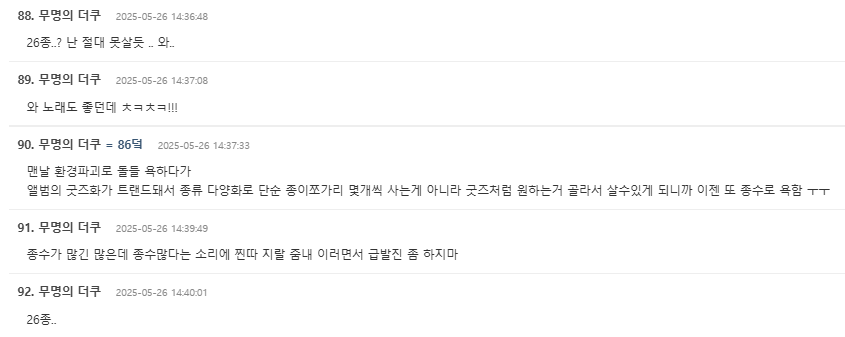Not all netizens are happy…
RIIZE has grabbed headlines with their latest album, Odyssey, achieving a remarkable feat by selling over 1.79 million copies in its opening week—setting a new record for the group.

Impressively, Odyssey moved over 805,000 copies on its first day alone. By week’s end, total sales reached a whopping 1,797,200 copies, easily surpassing their previous records. For context, their 2024 single album, RIIZING, had tally sales of 1.255 million, while their debut mini album, Get A Guitar, just crossed the million mark.
The surge in sales has not only drawn praise from fans but has also ignited intense debate online. Key among the discussions is the number of physical versions available for the album.
With Odyssey released in a staggering 27 versions—including seven Photobook variants (one group and six individual), two Package versions (Earth and Universe), and seven SMini versions (six individual and one Mega)—the sheer variety has left music lovers buzzing.
RIIZE release 9 versions of The 1st Album ‘ODYSSEY’ Preview #RIIZE #라이즈 #ODYSSEY pic.twitter.com/sEhGrGacyu
— riize.city (@riize_city) May 11, 2025
However, a segment of Korean netizens express concern, arguing that the multitude of versions promotes excessive spending and contributes to environmental issues associated with K-Pop merchandise production.
On the other hand, many fans are quick to defend the variety, suggesting that it provides more options for personalization, allowing fans to choose their favorites rather than merely collecting identical copies.

- “26 versions? There’s no way I could ever buy that many… wow…”
- “Congrats, and the songs are fantastic too!”
- “People used to criticize idols for environmental harm, but now that albums have become more like merchandise, they’re upset about the number of versions. It’s frustrating.”
- “Sure, there are a lot of versions, but let’s not attack those who think it’s excessive. Let’s keep it chill!”
- “26 versions…”
As the landscape of K-Pop album packaging evolves, the ongoing conversation regarding the implications of physical albums is only set to grow.



